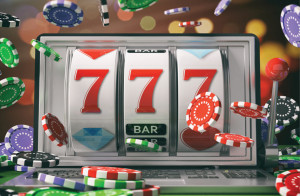The excitement of winning
Gambling, in one form or another, is permitted everywhere across Canada, but differently regulated by each of the country’s ten provinces and three territories. Casinos, racetracks, lotteries and other gaming organizations all must follow the laws as laid out by their governing province or territory. For many people, this is a form of entertainment. But it happens that, sometimes, things get out of control. How easy is it to get addicted to gambling? And why? Milénio Stadium asked Serge DeIure, former director of the British Columbia Lottery Corporation (BCLC), about this topic.

Milénio Stadium: How significant is this industry in Canada?
Serge Delure: I can speak of British Columbia, and you can use that as a reference. Alcohol, gambling and now cannabis are all regulated by an entity, and they give the jurisdiction to the provinces. And in British Columbia, like in a lot of provinces, they are ran by the Canadian Crown corporation. So, all of the Crown corporations in BC, the BCLC, which is the gambling, casino and lottery side of that business, was the highest back when I was working there. It was a high income generator of all the Crown corporations, so a lot of other Crown corporations that sometimes are cost centers like Ontario hydro, BC hydro, etc, they produced at that time over a billion dollars of revenue to the taxpayers of BC.
MS: We see many people become addicted to gambling and compromising several aspects of their lives because of it. How does this happen?
SD: Yeah. I’ve worked in alcohol, I’ve worked in gambling, so I’ve been in restricted industries all my life and what’s coincident with my experience, and this has been published, is that typically, regardless of what happens, five to seven or eight percent of the population can have an addictive nature. It’s in their DNA. So, everything they do, whether it’s gambling, whether it’s alcohol, whether it’s working out, whether it’s food… they have natural addictive personalities. So, the important thing to understand is that there will be people that, regardless of what you do, there will be people who cannot use that product in a healthy fashion. What that does mean is the majority of people can.
MS: Is there any form of help we can reach for, if we are having trouble handling the situation?
SD: I can speak for BCLC, we had a whole program around support for people with addictions. Everything from counseling services to voluntary exclusion as a player, if you realize that you couldn’t control yourself. In a casino format, you could go and be self-excluded and they would take photos and have facial recognition technology at the venue so they would restrict you from entering facilities.
MS: What would you say that is a good way establish healthy limits when gambling?
SD: Yeah, that’s the million-dollar question. It’s really difficult, we train all the staff in all the casinos to recognize signs of people who may be excessive. But you don’t know what’s going on their lives, what’s causing them to have some emotional outburst, you don’t know the financial situation, so it’s really difficult to pinpoint and see that someone is having a problem. What you can do if you recognize some of the signs of people not participating or not feeling well in that kind of situation is as I said, they have counsellors and access to counseling, free of charge, in all the facilities. What we have to do, in my opinion, is really over index, when you do see someone with the situation or problem, try to give them as much support and help as you can.
MS: What should we do once we notice that someone is having an issue?
SD: If you recognise that somebody is having an issue, you can recommend counseling. And part of that counseling session is to let those people know that there’s a program of self-exclusion. If they sign off on it, we will actually manage their behavior for that. We can’t legally stop someone from coming in, unless they give us permission to do so.
MS: Why is gambling so addictive and why are these games so alluring?
SD: I wouldn’t make a general statement to say that games are addictive. I would say that people have an addictive personality and there is a rush of energy and excitement of winning… of winning anything. For some people, it really gets their endorphins going and get a lot of different stimulation. For a lot of people who play and set up a budget-like fund, knowing that they’re going to probably lose and they’re comfortable with it and it’s just a form of entertainment and they walk away and there’s no issue. So, I wouldn’t necessarily use the term that it’s an “addictive” game. There are people who are addictive and will get lured in by the energy of the games.
Telma Pinguelo/MS








Redes Sociais - Comentários